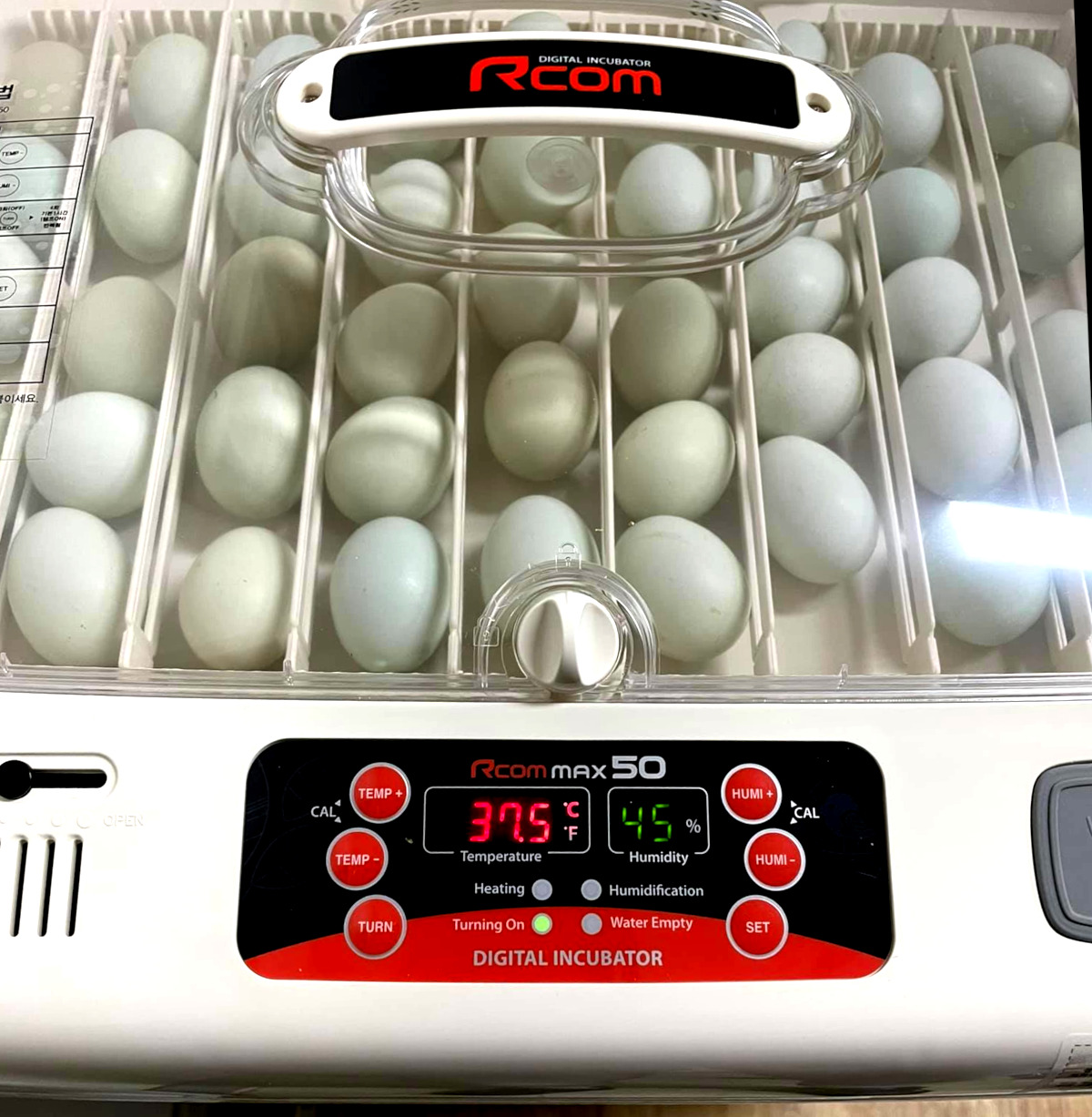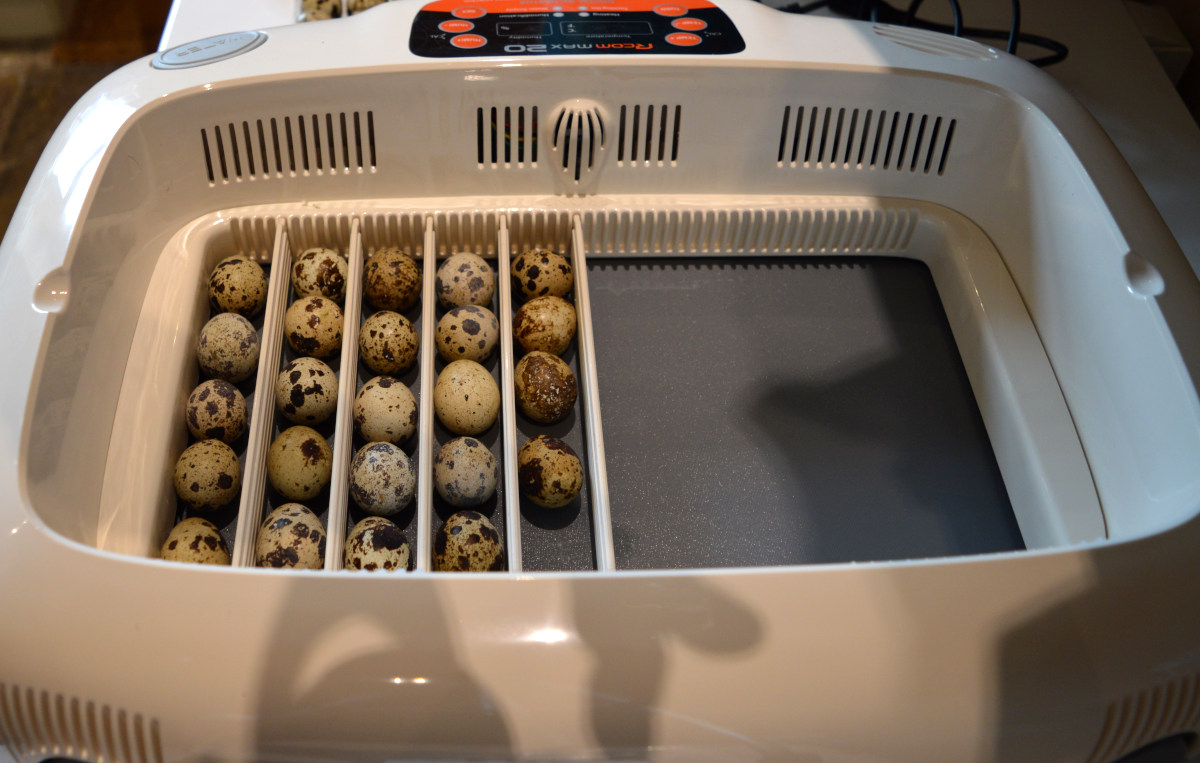Periodic cooling of eggs during incubation. Does it work and should you being doing it.

Periodic cooling during incubation is the process of temporarily lowering the temperature of eggs for up to 30 minutes during the incubation process to naturally mimic the cooling that happens when hens get off the nest to feed.
Table of Contents
In nature, mother birds will get off the nest to eat and drink, which causes the eggs to cool down. It is said that this cooling helps to regulate the embryo's development and can improve hatch rates.
Most chicken keepers are exposing their eggs to periodic cooling when they candle them.
Do eggs need to be cooled during incubation.
Eggs hatch just fine without a cooling cycle, especially in the smaller incubators backyard chicken keepers make use of.
However, the hatch rate may be lower than if the eggs were cooled. This is because cooling helps to regulate the embryo's development and prevent it from overheating in the latter stage of the incubation cycle.
If you choose to incubate eggs without a cooling cycle, it is important to monitor the eggs closely and make sure that they do not overheat.
Below: The simplest way to cool eggs is to open the incubator for 15 minutes a day.

The ideal temperature for incubating eggs is 99.5 degrees Fahrenheit.
If the temperature gets too high, the embryo can be damaged or killed. This can happen in the larger incubators in the late stages of incubation as the chicks embryos begin to produce their own heat.
Advantages of cooling cycles during incubation:
Periodic cooling is said to be a safe, simple, inexpensive and effective way to improve the hatch rate of eggs. Although most of the studies I looked at found very little difference.
- Improved hatch rates,
- Increased embryo development,
- Reduced risk of overheating later in the cycle,
- Reduced risk of bacterial and fungal contamination.
Disadvantages of periodic cooling:
- Incubation will take up to 1 day longer to hatch,
- Chicks my take longer to feed and develop after hatching,
- Chicks are smaller,
- You might forget to turn the incubator back on.
One of the ways you might choose to look at this is to see how commercial incubator operate. In business an increase in hatch rate might be worth thousands or more from every batch.
Interestingly none of the commercial incubators I looked at had a cooling cycle in their control mechanisms and my contact in the business said that " The increased incubation time more than offsets the benefits of any perceived increase in hatch rate".
Large commercial incubators often have to be cooled as the high density of developing embryos produces a lot of heat that needs to be dissipated.
I have tried periodic cooling and found that it makes no difference to my hatch rates over time.
How much cooling should eggs get and to what temperature should they be cooled?
In an incubator, you can mimic this natural process by cooling the eggs for a short period of time each day.
The best time to cool the eggs is between day 7 and day 18. You can cool the eggs by turning off the incubator for 15-30 minutes each day.
It is important to note that you should not cool the eggs too much or for too long. If the eggs cool down too much, the embryo can be damaged. If you are not sure how to cool the eggs properly, it is best to consult with an expert.
Here are some tips for cooling eggs during incubation:
- Cool the eggs for 15-30 minutes each day between day 7 and day 18,
- Do not cool the eggs below 71 degrees Fahrenheit or 22 C,
- Do not cool the eggs for more than 30 minutes at a time.
- Monitor the eggs closely during cooling.
There are a few different ways to do periodic cooling. One way is to simply open the incubator door for a few minutes each day. Another way is to use a cooling fan or pad to lower the temperature of the air inside the incubator.
The length of time that eggs are cooled and the frequency of cooling will vary depending on the species of bird and the incubator being used. It is important to follow the instructions that come with your incubator or to consult with a bird breeder to determine the best cooling schedule for your eggs.
What does the science and studies say about periodic cooling during incubation?
In their study from 2018, Aline Bertin et al, found that chicks that hatched from eggs that had been cooled had a "significantly higher latency to eat a novel food in experimental chicks than in control chicks, thus suggesting a stronger food neophobia in experimental chicks" .
And that "Hatching success did not differ significantly between the experimental group and the control group".
And that "The cooling treatment increased incubation duration significantly". figures of between 0.57 and 0.93 days were noted during the experiments.
In plain English this means they took longer to start eating and were more afraid of new foods that were presented to them and showed stronger fear reactions.
In their study from Nov 2007, F. M. Lancaster & D. R. Jones found that "Cooling had no significant effects on hatchability or chick quality compared with controls" except when used too early in the incubation cycle or for too long or the eggs were cooled below 18.3°C.
Iowa University found that there was "Decreased embryo mass, reduced residual yolk, and reduced efficiency of growth, in addition to the well-known cost of an extended incubation period." Meaning the chicks were smaller, has less yolk inside when they hatched and took longer to grow.
The only study I could find that showed an increase in hatchability from cooling was done on such a small number of eggs that a difference of one gave a variance of 5%. When it comes to studies involving eggs you really need a sample size of at least 100 to be statistically significant.
This study only used 40 eggs per batch. Interestingly they did find "A statistically significant increase in weight loss in groups with a cooling period compared with those without". A common result in all the studies.
